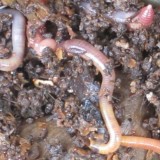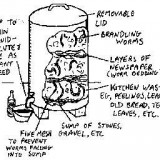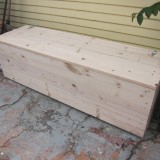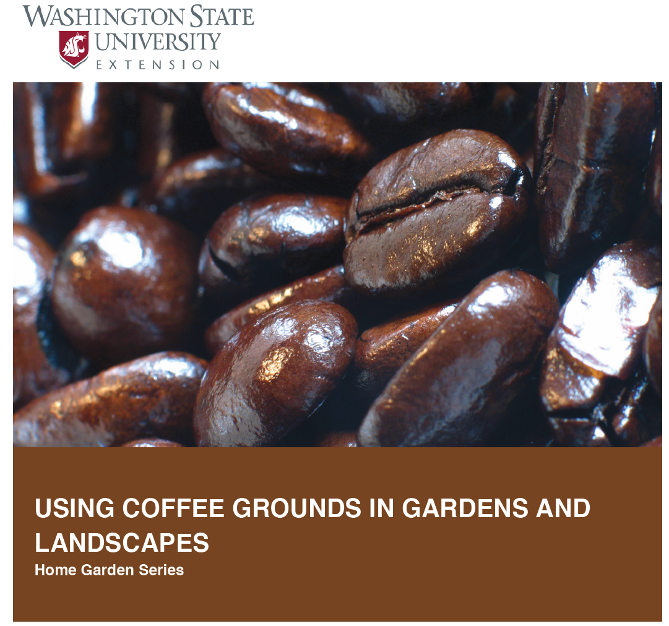 Today’s tip comes from neo-country singer and South Pasadena-by-way-of-Texas resident Corey Travis (web site under development). Corey brings up the topic of worm composting, suggesting a book called “Worms Eat My Garbage” by Mary “Worm Woman” Applehof. Now we haven’t read this book, but having tried worm composting you will definitely need some advice either from the “internets” or from a book.
Today’s tip comes from neo-country singer and South Pasadena-by-way-of-Texas resident Corey Travis (web site under development). Corey brings up the topic of worm composting, suggesting a book called “Worms Eat My Garbage” by Mary “Worm Woman” Applehof. Now we haven’t read this book, but having tried worm composting you will definitely need some advice either from the “internets” or from a book.
We tried worm composting here in the compound garden a few years ago and found the process somewhat difficult. Unlike our present lazy composting methods, worm composting requires a certain amount of time and effort. When you start a worm composting system you are acquiring pets – worm pets, that need just the right amount of water (too much and they’ll drown, too little and they will be unhappy), and food (if all your meals are at In and Out Burger they won’t get enough grub or if you are some kind of hippie vegan they won’t be able to keep up with the waste). You must also sift and separate the worm casings from the worms themselves from time to time. One advantage to worm composting is that you can theoretically locate the worms under your sink, providing a close destination for disposing of your kitchen scraps. However, you can find yourself with unpleasant smells and fruit flies if you add too many scraps for the little buggers to digest. We had problems maintaining the correct moisture level in the bin and ended up drowning a bunch of the hapless critters when we accidentally left the worm composter out in the rain. In the end we released our worms into our large compost pile, where they live very happily, occasionally humming the tune “Born Free.”
There’s been some grumbling that SuriviveLA has not offered any advice to our apartment livin’ brothers and sisters. Worm composting is an excellent an option for apartment dwellers looking to recycle their kitchen scraps. The whole set up is isolated in a plastic bin which can live in the kitchen or in a cool, shady spot on the balcony. The worm castings (poop, if you will) are odorless and make an outstanding fertilizer that you can use on your own potted plants or give to friends with gardens. Believe us, they will be very happy with your gift of worm poop. Do not let SurviveLA’s failure discourage you from giving this excellent technology a try. Just be sure to study up on it first.





Check out this link (copy and paste entire link)
http://www.instructables.com/
id/EHII4ZKZN5EPH67CKF/
You can get some bonus valuable fertilizer and control the moisture issue by making a double-bucket system. Nest your bin inside another bin. The bin with the wormies should have air holes and drainage holes in the bottom.
The second bin is pristine. Water drained into the second bin keeps your worms from drowning and provides a yummy compost tea.